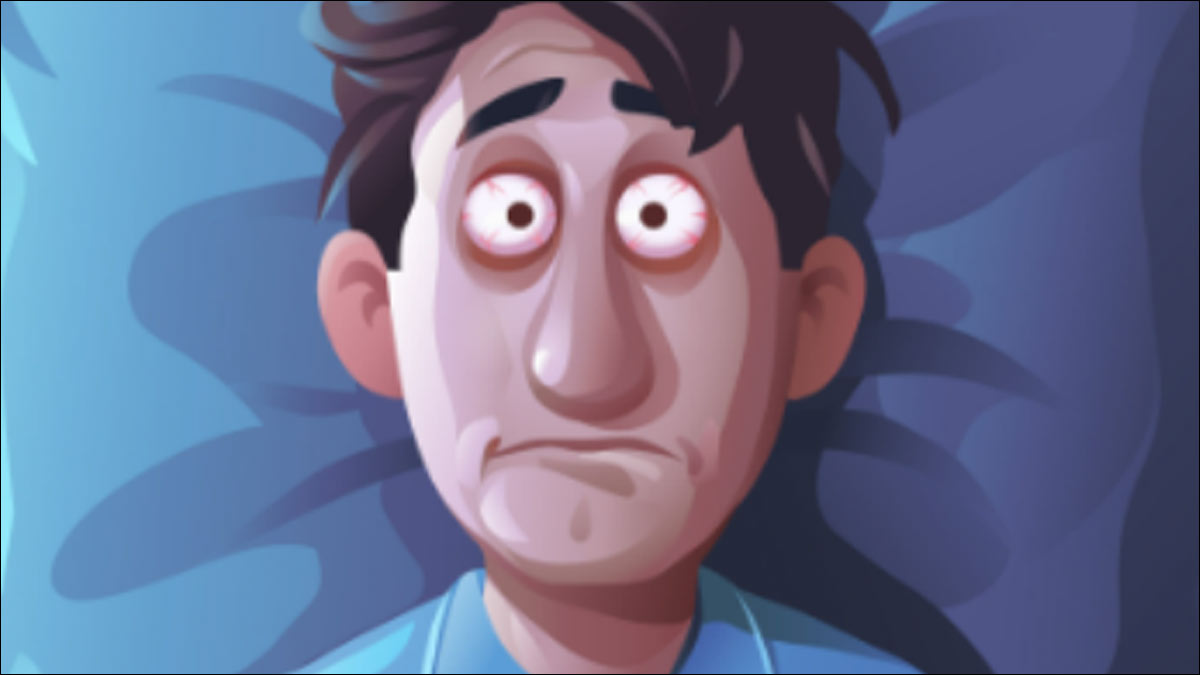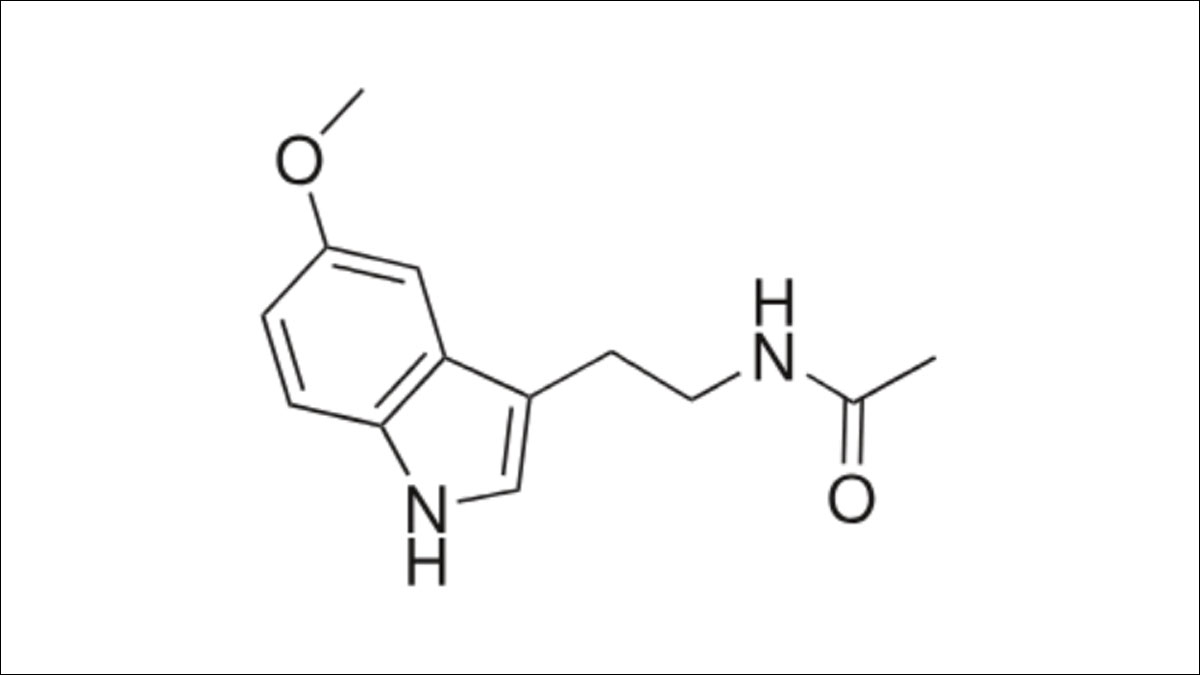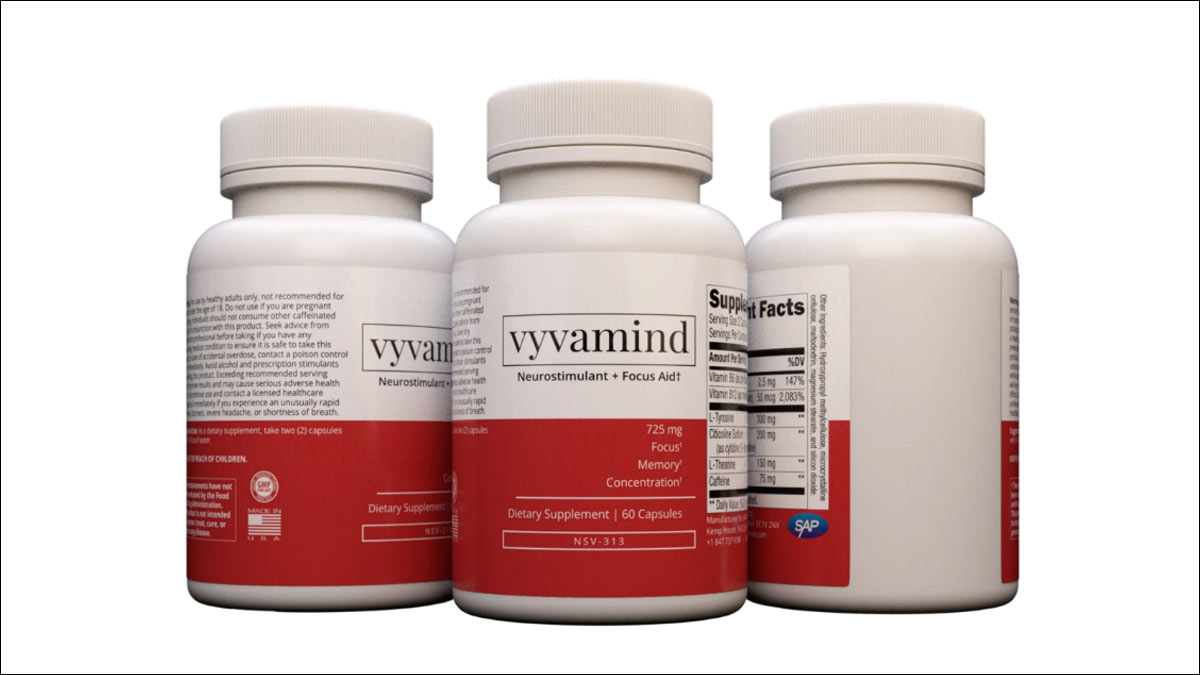
In the intricate landscape of pharmaceuticals and supplements, understanding the dynamics between commonly used medications and popular over-the-counter products is paramount. Adderall, a widely prescribed drug for attention-deficit hyperactivity disorder (ADHD), and melatonin, a go-to supplement for sleep regulation, represent two pillars in their respective domains.
Table of Content:-
The significance of sleep quality and quantity for overall health
Synergizing Adderall and Melatonin: Potential Benefits and Concerns
The Right Timing and Dosages When Combining These Substances
Potential Positive Outcomes of Combining Adderall with Melatonin
Expert Advice: When and How to Consider Stacking Adderall with Melatonin
With an increasing number of individuals turning to both for enhanced daily functioning, understanding their interaction becomes vital.
This article dives deep into the synergy between Adderall and melatonin, exploring the ways in which they might complement or conflict with each other. By shedding light on their individual properties, the challenges posed by Adderall on sleep, and the potential of melatonin as a rectifying agent, we aim to offer a comprehensive guide for those seeking to optimize their well-being.
As with any drug or supplement interaction, being armed with knowledge paves the way for informed, safe choices. Let's embark on this exploration to discern how best to navigate the interplay between Adderall and melatonin for a balanced and harmonious health journey.
Read more about the top Adderall Alternative: Best OTC Pills Without a Prescription for ADHD in 2023.
Unraveling the Basics of Adderall and Melatonin
Before we take a closer look at taking Adderall and Melatonin together at the same time (so-called “stacking”), it’s worth looking at each drug individually first so we understand what they do in isolation.
Adderall: A Quick Overview
Adderall, a potent combination of amphetamine and dextroamphetamine, stands out as one of the primary medications prescribed for ADHD (attention-deficit hyperactivity disorder). Its core function is to stimulate the central nervous system, thereby helping to enhance focus, concentration, and attention in individuals with ADHD. This augmentation of neurotransmitters, primarily dopamine and norepinephrine, can significantly improve daily functioning for many.
While Adderall's benefits are undeniable for those who need it, it doesn't come without its set of potential side effects. Some users report experiencing increased heart rate, high blood pressure, dry mouth, and, notably for our topic of interest, insomnia or disturbed sleep patterns. The stimulatory nature of Adderall, especially if taken later in the day, can interfere with the body's natural sleep-wake cycle, leading some users to seek remedies to offset this unwanted side effect.
Melatonin: More Than Just a Sleep Aid
Melatonin, often dubbed the "sleep hormone," plays a pivotal role in regulating our circadian rhythms. Produced by the pineal gland in our brain, melatonin levels typically rise in the evening, signaling to our body that it's time to wind down and prepare for sleep. As morning approaches and light increases, melatonin production drops, nudging us towards wakefulness.
In today's fast-paced world, with the omnipresence of artificial lighting and screen exposure, our natural melatonin production can sometimes get out of sync. Enter melatonin supplements. While they're popularly recognized for aiding in sleep, especially for jet lag or shift work, melatonin's role extends beyond just lulling us to sleep. It acts as a powerful antioxidant and has been researched for its potential benefits in various areas, from supporting eye health to managing tinnitus.
The appeal of melatonin supplements largely stems from their ability to mimic our body's natural melatonin production. They offer a gentle nudge, as opposed to a harsh shove, towards restfulness. This makes melatonin an attractive option for those grappling with the sleep-disturbing effects of medications like Adderall. As we further delve into their interaction, it becomes imperative to weigh the potential benefits against any possible risks.
The Challenge with Adderall: Disturbed Sleep Patterns

Why are people interested in combining melatonin with Adderall anyway?
The main reason will be obvious to most of you: Adderall has a powerful effect on your sleeping patterns, especially if you are taking it and you do not have severe ADHD.
How Adderall can impact sleep
Adderall, while highly effective in treating ADHD symptoms, carries with it a potential downside when it comes to sleep. Being a central nervous system stimulant, it boosts the levels of certain neurotransmitters in the brain, such as dopamine and norepinephrine. These neurotransmitters play a crucial role in attention and alertness, which, while beneficial during the day, can become problematic as night falls.
Many individuals who take Adderall report difficulties in falling asleep, staying asleep, or experiencing non-restorative sleep. This "alert" state induced by the medication can persist for hours, making it challenging for users to wind down and transition into the restful phase necessary for a good night's sleep. The lingering presence of Adderall and its sleep-disturbing effects may be especially pronounced if the medication is taken later in the day or in extended-release forms, which gradually release the active ingredients over time.
The significance of sleep quality and quantity for overall health
Sleep isn't just a passive activity; it's a critical component of our overall health and well-being. During sleep, our body undergoes numerous restorative processes: muscles repair, memories consolidate, and hormones that regulate growth, stress, and metabolism get released. It's no surprise, then, that chronic sleep deprivation or frequent disturbances in sleep patterns can have far-reaching consequences.
A consistent lack of restful sleep can lead to cognitive impairments, affecting memory, decision-making, and reaction times. Emotionally, it can heighten feelings of irritability, anxiety, or even lead to mood disorders. Physically, poor sleep can increase the risk of chronic conditions like obesity, heart disease, and diabetes. Furthermore, the immune system relies on adequate sleep to function optimally; hence, sleep-deprived individuals might find themselves more susceptible to infections.
Given the fundamental role of sleep in maintaining good health, it becomes all the more essential to address any factors that might be hampering it. For those on medications like Adderall, it's a delicate balancing act—managing the therapeutic benefits of the drug while mitigating any adverse side effects, particularly those affecting sleep. This has led many to consider adjunct remedies or supplements, like melatonin, to counterbalance these sleep disturbances and maintain a healthier sleep-wake cycle.
Melatonin's Role in Rectifying Sleep Disruptions
Melatonin, often referred to as the "sleep hormone", is nature's answer to our circadian rhythm needs. Its fundamental role in regulating sleep-wake cycles makes it a topic of interest for those facing sleep disturbances, particularly when induced by medications. Understanding melatonin's mechanism, its potential in counteracting the sleep-related effects of Adderall, and the scientific backing of its efficacy can shed light on its growing popularity.
Mechanism of Action of Melatonin

Melatonin is a hormone produced primarily by the pineal gland in the brain. Its secretion is influenced by the day-night cycle, where the levels rise in the evening, peak at night, and decrease by morning. This natural rise and fall are intimately tied to our internal biological clock, assisting in signaling the body when it's time to relax and prepare for sleep.
Upon release, melatonin binds to specific receptors in the brain—MT1 and MT2 receptors. These receptors play a pivotal role in sleep onset and maintenance. By binding to these receptors, melatonin facilitates the reduction of nerve activity, promoting relaxation and drowsiness. Furthermore, it plays a role in reducing core body temperature, a physiological change that supports the onset of sleep.
How Melatonin Can Counteract Adderall's Effects on Sleep
For individuals taking ADHD medications like Adderall, the heightened alertness and increased neurotransmitter activity can throw off the body's natural sleep rhythm. Here's where melatonin comes in. By introducing an exogenous source of melatonin, through supplements, it can potentially enhance the body's natural cues for sleep, making it easier to fall asleep even in the presence of stimulants.
When considering taking melatonin with ADHD medications, it is crucial to time it right. Melatonin supplements are usually recommended in the evening or a few hours before bedtime to align with the body's natural secretion pattern. This can aid in smoothing the transition from wakefulness to sleep, counterbalancing the alertness produced by Adderall.
Scientific Findings Supporting Melatonin's Efficacy
Several studies have delved into melatonin's effectiveness in addressing sleep disturbances, not just with ADHD medications but in various scenarios. One study found that melatonin supplementation could improve sleep onset latency (time taken to fall asleep) in individuals with ADHD, suggesting its potential role in combating the stimulant-induced sleep disturbances.
Moreover, a systematic review evaluating melatonin's efficacy in pediatric ADHD patients (many of whom were on stimulant medications) highlighted its potential in improving overall sleep quality and duration. These findings are particularly promising, considering the significance of sleep in cognitive function and overall well-being in younger populations.
In conclusion, while melatonin offers a promising natural adjunct to manage the sleep-related side effects of Adderall, it's essential to approach its use with caution. Always consult with a healthcare professional before introducing melatonin, especially when taking it alongside ADHD medications, to ensure a safe and effective regimen.
Synergizing Adderall and Melatonin: Potential Benefits and Concerns

Combining medications or supplements is a practice that requires an understanding of the potential synergistic effects and any potential risks. When considering taking melatonin and Adderall together, there's much to unpack. From the ideal timing and dosages to potential outcomes—both beneficial and adverse—it's imperative to approach this combination with knowledge and caution.
The Right Timing and Dosages When Combining These Substances
The efficacy of taking melatonin and Adderall together hinges significantly on timing. Adderall, being a stimulant, is typically prescribed to be taken in the morning or early afternoon. This minimizes potential disruptions to the sleep cycle caused by its activating effects.
Melatonin, on the other hand, naturally aligns with the body's circadian rhythm when secreted in the evening. Thus, when using melatonin supplements, it's advisable to take them a few hours before bedtime. This ensures that the supplement's effects dovetail with the body's natural sleep-inducing processes, offering the best chance at restorative sleep.
As for dosages, this can vary based on individual needs and sensitivities. For those new to melatonin, starting with a low dose (0.5mg to 1mg) and gradually increasing as needed is often recommended. This gradual approach allows for monitoring any potential side effects or interactions with Adderall. It's also vital to note that more melatonin isn't necessarily better. In some cases, lower doses have been found more effective in promoting sleep.
Potential Positive Outcomes of Combining Adderall with Melatonin
- Improved Sleep Quality and Duration: The primary benefit of introducing melatonin alongside Adderall is the potential for improved sleep quality. Melatonin can aid in offsetting the sleep disturbances commonly associated with stimulant medications, allowing for a deeper and more restful night's sleep.
- Enhanced Daytime Functioning: Good sleep translates to better daytime functioning. For those taking Adderall for ADHD or narcolepsy, a restful night can mean enhanced focus, fewer mood swings, and better overall health.
- Natural Regulation of Sleep-Wake Cycles: Over time, consistent use of melatonin may assist in realigning a person's sleep-wake cycle, particularly if it has been disrupted by factors like shift work, jet lag, or prolonged use of stimulants.
Drawbacks to Be Aware of
- Potential for Over-sedation: Especially at higher doses, combining melatonin with the tail end of Adderall's effects could lead to feelings of grogginess or over-sedation. This could pose challenges in waking up on time or feeling alert in the early morning.
- Interactions with Other Medications: Beyond Adderall, it's essential to consider any other medications in the mix. Some drugs may interact with melatonin, either amplifying or dampening its effects.
- Dependency Concerns: While melatonin is not habit-forming in the traditional sense, there's potential for psychological reliance, especially if one starts to believe they can't sleep without it.
In conclusion, while there are evident potential benefits of combining Adderall with melatonin, it's not a one-size-fits-all solution. Individual reactions can vary, and what works for one person might not necessarily work for another. It's paramount to consult with a healthcare professional before introducing melatonin to an Adderall regimen to ensure optimal outcomes and safety.
Expert Advice: When and How to Consider Stacking Adderall with Melatonin
Navigating the world of medication and supplements can be complex. When considering taking melatonin with ADHD medications like Adderall, expert guidance can provide clarity and ensure safety. Here’s a distillation of expert advice on how and when to entertain this combination, along with precautions to observe.
Guidelines on Starting Melatonin When on Adderall
- Consult First: Always begin by consulting with a healthcare professional. They can offer insights tailored to individual needs and provide clarity on dosages and timing.
- Start Low and Slow: If given the green light to introduce melatonin, start with a low dose, often between 0.5mg to 1mg. Monitor the effects and, if necessary, adjust the dose under professional guidance. Remember, sometimes less is more with melatonin.
- Timing is Key: As Adderall is an activating medication, it's generally taken in the morning or early afternoon to prevent sleep disturbances. To counteract any lingering stimulant effects in the evening, melatonin should be taken a few hours before bedtime, aligning with the body's natural circadian rhythm.
- Monitor for Efficacy: While melatonin can be effective in promoting sleep, it doesn't work for everyone. Journaling sleep patterns before and after introducing melatonin can provide clear insights into its efficacy.
Precautions and Signs the Combination Might Not Be Right
- Over-sedation: If waking up feels particularly challenging, or there's persistent grogginess during the day, it may indicate an excessive melatonin dose or that the combination is not suitable.
- Altered Effects of Adderall: If Adderall seems less effective or its duration seems shortened after starting melatonin, it might be a sign that the body is reacting to the combination in an unexpected way.
- Other Side Effects: While rare, melatonin can cause headaches, dizziness, or stomach discomfort in some individuals. If any of these symptoms appear after starting melatonin, it's essential to consult with a doctor.
- Mood Changes: Changes in mood or increased irritability can sometimes arise when introducing new supplements or changing medication routines. If significant mood shifts are noted, it's crucial to revisit the combination with a healthcare professional.
- Long-Term Reliance: Melatonin is a natural supplement, but that doesn't mean it should be taken indefinitely without assessment. If after several weeks there's a heavy reliance on melatonin to sleep, it might be worth discussing long-term implications with a doctor.
In essence, the combination of Adderall and melatonin can be beneficial for many, but it's not devoid of potential challenges. Being observant of any changes, staying informed, and maintaining an open dialogue with healthcare professionals will ensure the best possible outcome for those considering this pairing.
Beyond Melatonin: Other Interventions for Sleep Enhancement
In the quest to achieve restorative sleep while managing ADHD symptoms, individuals often explore various avenues. While melatonin stands out as a popular choice to combat Adderall-induced sleep disturbances, it's just one of many strategies individuals consider. Delving beyond melatonin, we uncover other interventions, mainly focusing on ADHD treatment alternatives that may not disrupt sleep as prominently.
The Concern with Adderall and Sleep
Adderall, a combination of amphetamine salts, primarily serves to increase attention and decrease impulsiveness in individuals with ADHD. While effective, it can, unfortunately, interfere with the sleep-wake cycle. The stimulant properties, especially when taken later in the day, can challenge the onset of sleep and reduce its quality.
Considering Different ADHD Medications
One primary intervention individuals might contemplate is switching or adjusting their ADHD medication. Every ADHD medication has its unique profile, and what might cause sleep disturbances for one person might not for another.
- Non-stimulant ADHD medications: Options like Strattera (atomoxetine) or Kapvay (clonidine ER) fall into this category. Unlike stimulants, they don't typically cause insomnia and might even have sedative effects. They function differently, targeting norepinephrine rather than dopamine, and may be suitable for individuals looking to reduce nighttime wakefulness.
- Extended-release formulas: Some individuals find that changing from an immediate-release to an extended-release formula can help. Medications like Adderall XR release the drug more slowly and steadily, potentially leading to a reduced risk of insomnia.
- Dose adjustments: Sometimes, it's not about switching medications but about adjusting the dose. A lower dose or an earlier administration might resolve sleep challenges.
Comparing to Melatonin
When weighing the pros and cons of melatonin against alternative ADHD treatments, several factors come into play.
- Efficiency: Both melatonin and alternative ADHD medications can be effective, but their roles are distinct. Melatonin directly supports sleep, while ADHD medication alternatives address attention and impulsivity without significantly disrupting sleep.
- Side Effects: While melatonin is generally considered safe, it's not entirely free from side effects. On the other hand, alternative ADHD medications come with their potential side effects, though sleep disturbances might not be as prominent.
- Duration of Action: Melatonin's effects are typically short-lived, serving to usher in sleep. In contrast, ADHD medications offer therapeutic benefits throughout the day.
In summary, while melatonin offers a direct route to addressing Adderall-induced sleep challenges, considering alternative ADHD treatments might provide a more holistic approach. By addressing the root cause – the stimulant properties of certain ADHD medications – individuals might find a more seamless blend of attention management and restful sleep. This integrative approach can sometimes be best exemplified by exploring natural, over-the-counter alternatives, with products like Vyvamind gaining traction in recent discussions.
Vyvamind: The Best Over-the-Counter Alternative to Adderall

When it comes to managing attention and focus, many are on a perpetual quest for the ideal solution. While prescription medications like Adderall have been frontline treatments for ADHD, they come with a suite of side effects, particularly concerning sleep disturbances. Enter Vyvamind, an over-the-counter alternative that has been making waves as a safer, yet effective option.
No More Sleepless Nights
One of the primary advantages of Vyvamind over Adderall is the absence of sleep-related side effects. Adderall, being a stimulant, often interferes with the natural sleep cycle, leading to insomnia or poor quality sleep. Vyvamind, on the other hand, offers focus-enhancing benefits without jeopardizing a good night's rest. This means users can enjoy enhanced cognitive function during the day and uninterrupted, rejuvenating sleep at night.
Ingredient Breakdown
Vyvamind's effectiveness can be attributed to its well-researched and synergistic blend of ingredients:
- Citicoline: Known to support brain health, it boosts cognitive function and memory.
- Tyrosine: Plays a crucial role in producing neurotransmitters that improve alertness and attention.
- Caffeine Anhydrous: Offers a measured boost in energy and alertness without the jitters commonly associated with caffeine sources.
- Theanine: Complementing caffeine, it promotes relaxation without drowsiness, providing a balanced and sustained energy.
- B6 and B12: Essential vitamins that support brain health, energy levels, and overall cognitive function.
For those seeking a solution to attention and focus challenges without the unwanted side effects of prescription drugs, Vyvamind emerges as a top contender. Not only does it harness the power of potent ingredients to support cognitive function, but it also ensures users aren't trading focus for sleep. In the realm of over-the-counter brain health supplements, Vyvamind undoubtedly stands tall as a preferred choice.
In Conclusion: Seeking Balance in Cognitive Enhancement
The quest for improved cognitive performance has led many to explore various avenues, from prescription medications like Adderall to natural alternatives like melatonin. While each has its merits, it's essential to weigh the benefits against potential drawbacks. Adderall, while effective, comes with a slew of side effects, particularly in the realm of sleep. On the other hand, melatonin offers a natural solution to counteract these sleep disruptions but is another supplement to add to the regimen.
Enter the realm of over-the-counter supplements like Vyvamind, which bridge the gap between efficacy and safety. Offering the dual advantage of cognitive enhancement without the baggage of sleep disturbances, products like Vyvamind are indicative of a brighter future in the field of cognitive health.
As with any health decision, it's essential to be informed, consult with healthcare professionals, and prioritize one's well-being over temporary gains. Ultimately, the ideal solution is one that enhances cognitive performance sustainably and holistically, without compromising other facets of health.
Advertising and Marketing by:
This content was marketed by Brandingbyexperts.com on behalf of their client.
For queries reach out support@brandingbyexperts.com
Note - This article is written by Brand Desk.
Also watch this video
How we keep this article up to date:
We work with experts and keep a close eye on the latest in health and wellness. Whenever there is a new research or helpful information, we update our articles with accurate and useful advice.
Current Version